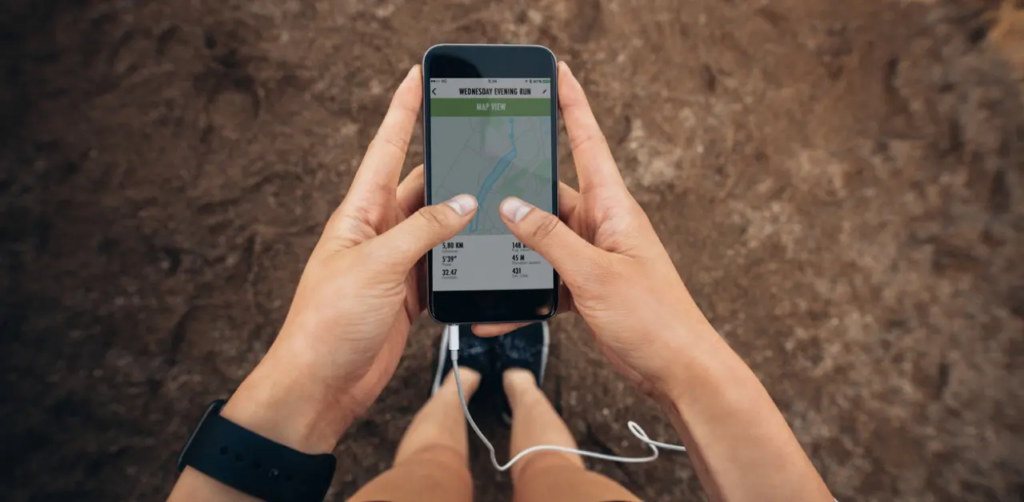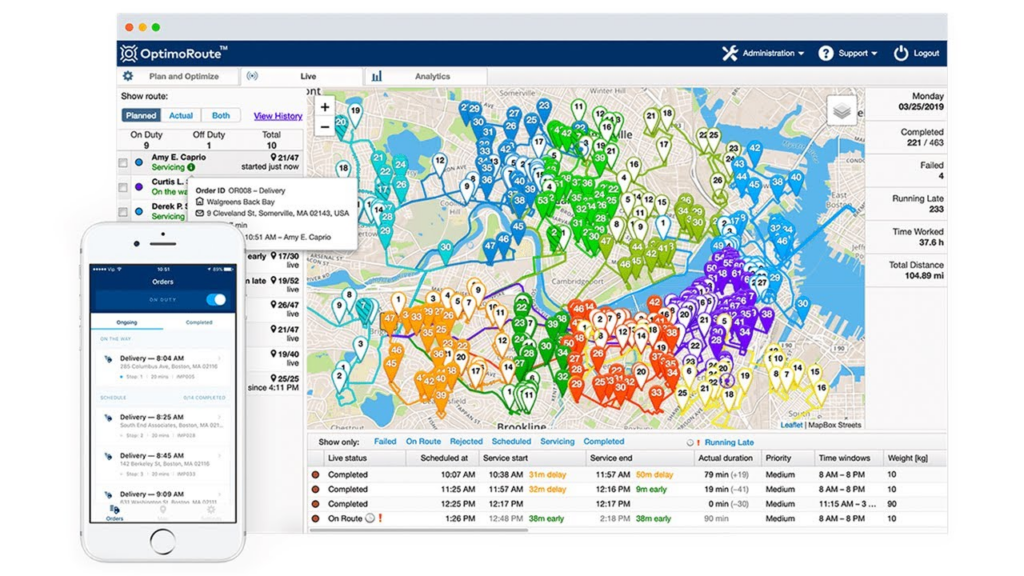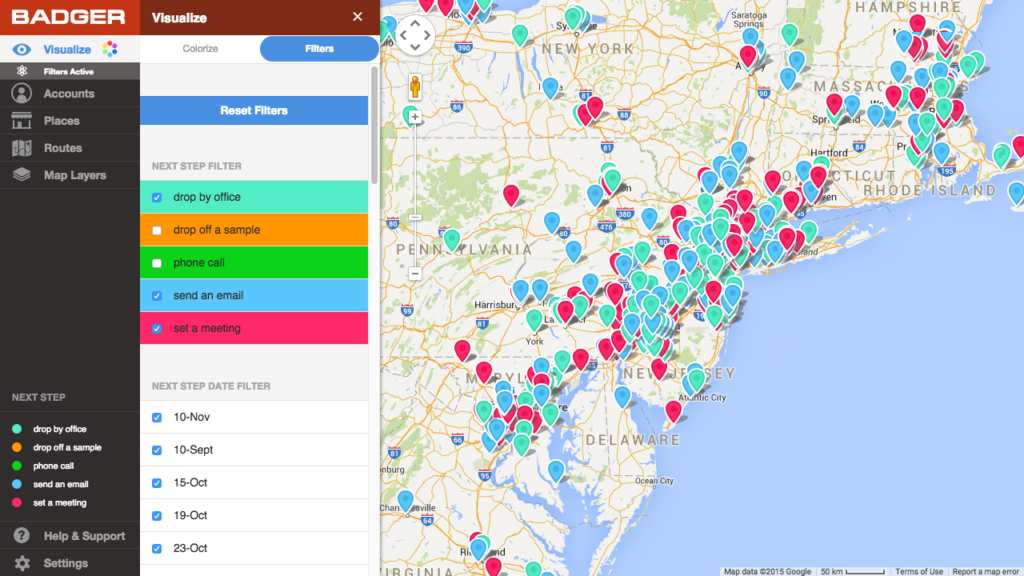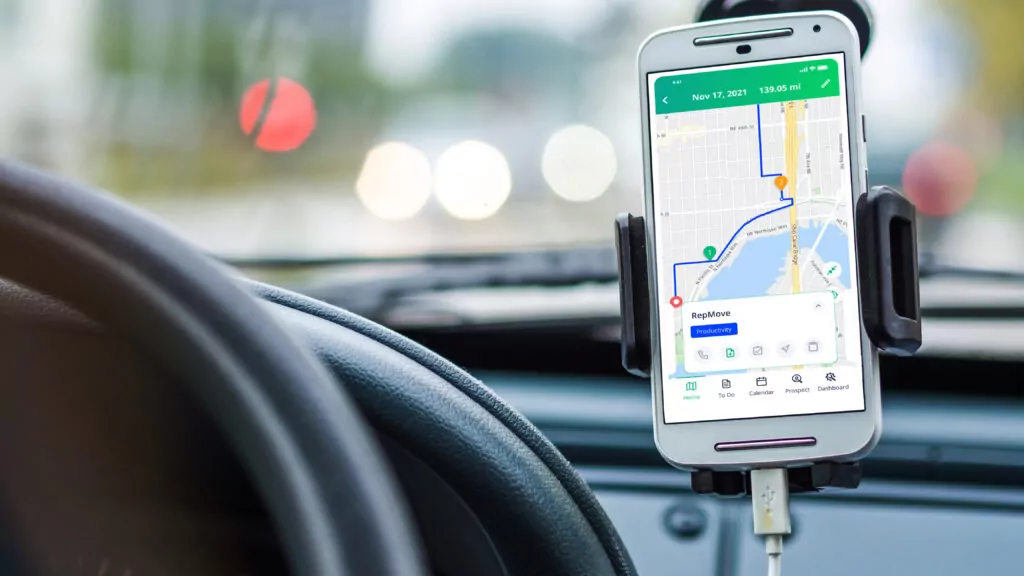In today’s fast-paced business landscape, time and money are two of the most valuable resources. For businesses engaged in Business-to-Business (B2B) operations, optimizing routes and managing transportation logistics efficiently can make a significant impact on their bottom line. This is where route planner apps come into play, offering innovative solutions that streamline the process and deliver substantial benefits.
Highlighting the increasing reliance of businesses on route optimization solutions to save time, money, and resources. This trend is driven by the growing demands of the quick delivery commerce market, which was valued at $92.88 billion in 2021 and is expected to grow to $291.17 billion by 2030, with a compound annual growth rate of 13.10%.
Introduction to Route Planner Apps
Route planner apps have revolutionized the way businesses approach transportation logistics. These applications leverage cutting-edge technologies such as GPS, real-time traffic data, and advanced algorithms to create optimal routes for deliveries, sales visits, and service appointments. Whether you’re a manufacturer shipping products to retailers, a distributor supplying goods to various locations, or a sales team visiting clients, route planner apps offer invaluable assistance.
Integrating electric vehicle fleet management software into route planner apps enhances efficiency by providing insights into charging infrastructure availability and optimizing routes to accommodate the unique needs of electric vehicles, thus supporting businesses in their transition toward sustainable transportation solutions.

Top Route Planner Apps for B2B Businesses
Google Maps Platform: Known for its accuracy and real-time data, Google Maps offers APIs that businesses can integrate into their systems to build custom route planning solutions.
Dyno Route: Dyno Route app gives us efficient route optimization, a user-friendly interface, a comprehensive report, Seamless Integration with Navigation Apps, Customizable Settings and Dedicated Support.
Route4Me: This app specializes in multi-stop route optimization, catering to businesses with complex delivery or service routes.
Badger Maps: Designed for field sales teams, Badger Maps offers route planning along with customer relationship management (CRM) integration.
OptimoRoute: With a focus on delivery and field service optimization, OptimoRoute offers AI-powered planning and advanced features like predictive traffic data.
WorkWave Route Manager: Ideal for fleet management, this app provides end-to-end route planning, vehicle tracking, and driver communication.
The Significance of Efficient Route Planning

Effective route planning is more than just finding the shortest path between two points. It takes into account various factors, including traffic conditions, delivery windows, vehicle capacity, and even weather conditions. By optimizing routes, businesses can achieve several crucial benefits:
Time Savings: Time is money, and route planner apps save a substantial amount of it by identifying the quickest and most efficient routes. This is particularly important for businesses that rely on timely deliveries or need to cover multiple stops in a single trip.
Cost Reduction: Efficient routes translate to lower fuel consumption and reduced wear and tear on vehicles. This results in cost savings on fuel and maintenance expenses, which can significantly impact a business’s overall budget.
Improved Customer Satisfaction: B2B businesses often operate on strict schedules. Delivering goods or services promptly enhances customer satisfaction and builds trust. Route planner apps help ensure timely arrivals and reduce the risk of missed appointments or deliveries.
Enhanced Productivity: Sales teams, field technicians, and delivery drivers can accomplish more in a day when their routes are optimized. This increased productivity can lead to higher revenue generation and improved operational efficiency.
Data-Driven Insights: Many route planner apps offer data analytics features that provide insights into delivery patterns, customer preferences, and performance metrics. These insights can inform strategic decisions and help businesses adapt their operations for better outcomes.
Key Features of Top Route Planner Apps

Several route planner apps stand out in the market due to their comprehensive features and user-friendly interfaces. Let’s explore some of the key features that make these apps invaluable for B2B businesses:
Real-time Traffic Updates: Integrating real-time traffic data allows the app to adjust routes dynamically based on current road conditions, minimizing delays and avoiding traffic congestion.
Multiple Stops Optimization: For businesses with multiple stops, the app calculates the most efficient order of visits, considering factors like distance, time windows, and priority.
Customizable Constraints: Route planners allow users to set specific constraints, such as vehicle type, weight capacity, and delivery windows. This customization ensures that routes align with operational requirements.
Geofencing and Notifications: Geofencing technology sends alerts when a vehicle or team member enters or exits a defined area. This is particularly useful for tracking progress and monitoring on-site activities.
Integration with Existing Systems: Many route planner apps can integrate with existing business management software, ERPs, or CRMs, streamlining the flow of information across different departments.
Mobile Accessibility: Mobile apps provide on-the-go access for drivers and field teams, enabling them to view routes, receive updates, and navigate effectively.
Scenario Simulation: Advanced apps allow users to simulate different scenarios to assess the impact of changes in real-time. This is useful for contingency planning and resource allocation.
Case Studies: Real-World Impact of Route Planner Apps on B2B Businesses
To truly grasp the transformative power of route planner apps in the realm of B2B, let’s delve into a couple of real-world case studies showcasing their tangible benefits:
Case Study 1: Distributor Optimization with OptimoRoute

Business Profile: A food distributor with a fleet of delivery trucks catering to various restaurants and cafes.
Challenge: The distributor faced challenges in efficiently managing their delivery routes. High fuel costs, late deliveries, and customer complaints were affecting their bottom line and reputation.
Solution: The distributor implemented OptimoRoute’s route planner app. By inputting delivery addresses, time windows, and vehicle specifications, they allowed the app’s algorithms to optimize their routes.
Results:
Reduced fuel consumption by 15%: The app’s optimization ensured that trucks took the shortest paths, saving fuel and lowering carbon emissions.
On-time deliveries improved: With real-time traffic updates, the distributor’s drivers were able to navigate around traffic congestion and adhere to delivery schedules, resulting in fewer customer complaints.
Customer satisfaction increased: Timely deliveries led to happier clients, strengthening the distributor’s relationships and fostering customer loyalty.
Operational efficiency boosted: The app’s data analytics helped the distributor identify patterns and optimize their routes over time, improving overall operational efficiency.
Case Study 2: Sales Route Optimization with Badger Maps

Business Profile: A pharmaceutical sales company with a team of field representatives visiting doctors’ offices to promote products.
Challenge: The sales team was struggling to cover a large number of appointments efficiently, leading to missed opportunities and uneven workloads among team members.
Solution: The company adopted Badger Maps’ route planner app, which is integrated with their CRM system. The app allowed the sales manager to assign appointments, set priorities, and optimize routes for each representative.
Results:
Increased appointments per day: With optimized routes, sales representatives were able to fit more appointments into their schedules, resulting in increased engagement with healthcare professionals.
Balanced workloads: The app ensured that appointments were evenly distributed among team members, eliminating instances of overloading some representatives while others had lighter schedules.
Improved focus on high-priority leads: The ability to set priorities enabled the sales team to focus on important clients, enhancing the effectiveness of their visits.
Enhanced reporting and insights: By tracking routes and appointments, the sales manager gained insights into each representative’s performance, helping identify strengths and areas for improvement.
The Future of Route Planner Apps in B2B

As technology continues to evolve, route planner apps for B2B businesses are poised to offer even more advanced features and benefits:
Machine Learning and Predictive Analytics: Future apps might use machine learning algorithms to predict traffic patterns, weather conditions, and delivery time variability, enabling businesses to plan routes that account for these factors in advance.
Sustainable Route Optimization: With a growing emphasis on sustainability, route planner apps could incorporate features that help businesses minimize their environmental footprint by optimizing routes for reduced fuel consumption and emissions.
Integration with Emerging Technologies: As technologies like autonomous vehicles and drone deliveries become more prevalent, route planner apps could seamlessly integrate these options into their optimization algorithms, providing businesses with a holistic view of their transportation options.
Enhanced Collaboration: Apps may evolve to facilitate better communication and collaboration between teams on the field and those managing operations, ensuring real-time updates and adjustments are seamlessly implemented.
Personalized Customer Experiences: Integration with customer data could enable businesses to tailor routes and delivery windows to specific customer preferences, further enhancing customer satisfaction.
Conclusion
In the world of B2B, route planner apps have proven themselves as indispensable tools that transcend mere navigation. They are powerful allies that drive efficiency, cost savings, and customer satisfaction. By harnessing real-time data, sophisticated algorithms, and customizable features, these apps have reshaped how businesses approach transportation logistics.
From distributors optimizing delivery routes to sales teams conquering their appointments, route planner apps are at the forefront of the B2B sector’s pursuit of operational excellence. In the competitive landscape of B2B operations, efficiency is a paramount concern. Route planner apps have emerged as indispensable tools that streamline transportation logistics, optimize routes, and ultimately save time and money for businesses.

